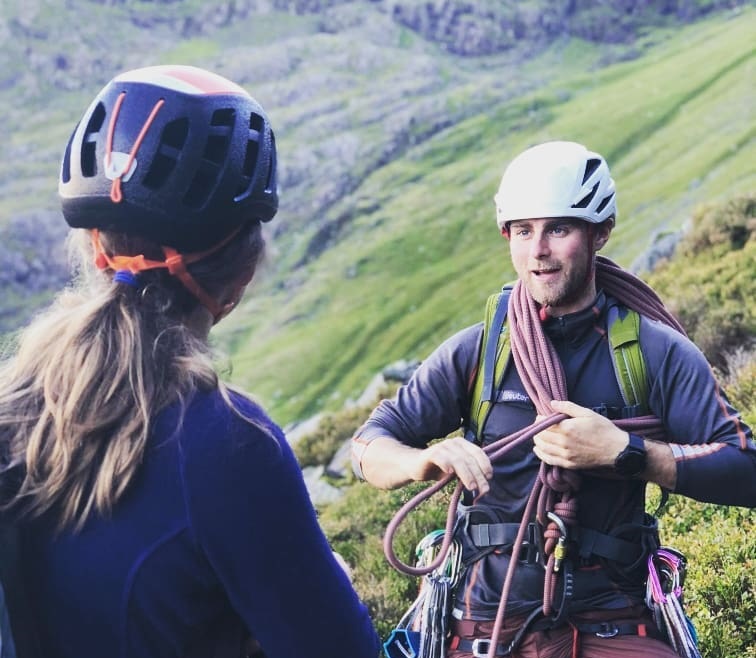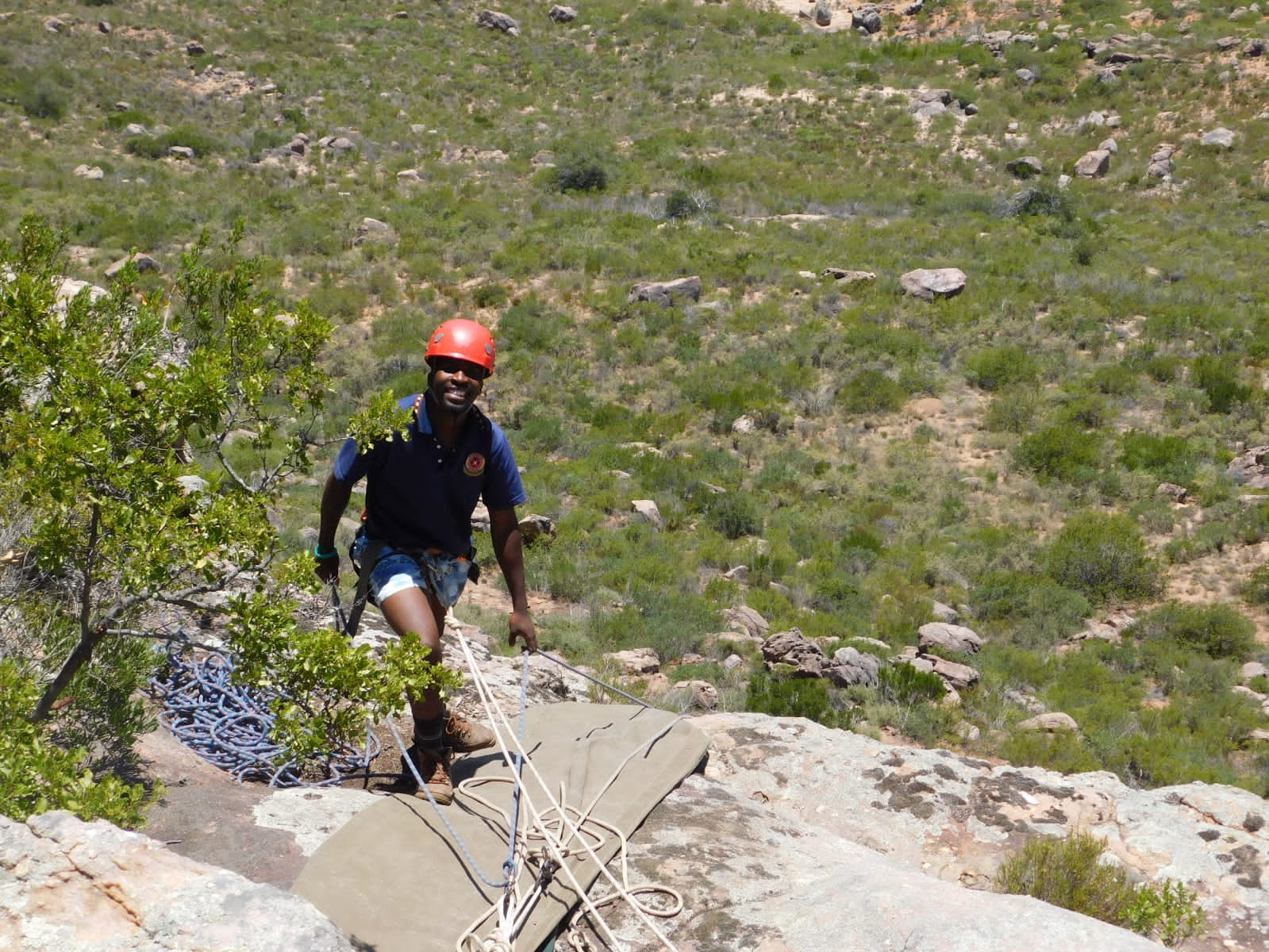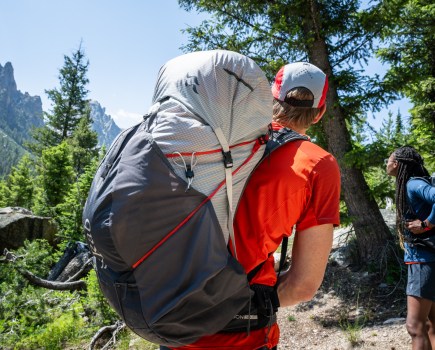The Covid era has been a tough time for the UK’s outdoor instructors, with work disappearing and support from the government sometimes unobtainable. Anna Richards speaks to three instructors to find out how they have coped.
Main image: Alex Kay working on Skye. Photo: Alex Kay
It goes without saying that the impact of Covid-19 has left many people suffering economic hardship, with the unemployment rate peaking at 5% – equivalent to 1.7 million people – in January this year.
Government support schemes have helped to cushion the overall impact, but the nature of some industries means they have been hit more heavily than others – such as the UK outdoor instruction and education industry.
The industry employs around 15,000 people nationwide, but because the nature of the work is so seasonal many instructors work on a freelance basis, which has made them vulnerable and often less eligible for support during the pandemic.
One such person is freelance mountain instructor Alex Kay. Before Covid, he worked all over the world. From January through to June he’d guide trips in Scotland and Snowdonia, before spending the summer months instructing in the Alps.

Alex Kay: “I took a job at a fruit farm down the road.” Photo: Alex Kay
Working with the seasons, he’d often go further afield from October to December, leading mountaineering trips in Kenya and Tanzania. But in March 2020, at the start of lockdown, Alex suddenly found himself jobless.
“I didn’t look for anything else straight away,” says Alex, “because I assumed that it would be over so quickly. When it became evident that lockdown was going to go on much longer than anticipated I took a job at a fruit farm down the road.”
Alex said he enjoyed his work. “It was physically demanding and required me to be outside all day, so in a way it was similar to the sort of work I was accustomed to.”
Fruit and forestry
In late July, after two months of fruit picking and with the promise of lockdown lifting, Alex returned to the Alps with a packed calendar of freelance instructing work, optimistic that the world was opening up again. But none of the expeditions went ahead.
Upon his return to the UK, faced with another quarter of cancelled expeditions and local lockdowns, Alex took on work at a Christmas tree farm which tided him over until the end of December.
But from then, nationwide lockdown meant that he was unable to find a job. He filled his time doing courses in chainsaw training and rope rescue through the North Wales Forestry First Scheme, which offered subsidies of up to 75% on their courses to outdoor instructors out of work during the pandemic. Alex is now back to working as an instructor, but even now his calendar isn’t at full capacity, and he says that he’s likely to have to find alternative work to supplement his income.
Slipped through the cracks
For outdoor instructor Gareth Davies, the pandemic couldn’t have come at a worse time.
“I worked at an outdoor centre that had already decided to close just before Covid hit, so I’d been made redundant,” he explains, “but I was so excited! I had a diary packed full of freelance instructing work and the future looked rosy.
“When lockdown started, all of my freelance work was cancelled, of course. Since the redundancy from the outdoors centre had nothing to do with Covid, I was
one of the people that just slipped through the cracks.”
Other than two emergency funding grants from Sport Wales, Gareth received no financial support. He took a job as a delivery driver for Morrisons, where he worked for 18 months before recently taking on the role of coordinating school provisions at Plas y Brenin. But he remained optimistic throughout.
“I loved working as a delivery driver!”
he enthuses. “Whilst everyone else was virtually housebound, I got to explore North Wales every day. If the pay was better I’d seriously have considered sticking to being a delivery driver full time!”
Uncertain future
The UK outdoor industry may be bouncing back but ongoing travel restrictions mean that mountain guides elsewhere haven’t been so lucky. Aphiwe Mndini was an Outward Bound instructor in South Africa and had just secured a position to transfer to Outward Bound Baltimore. He was due to start his new job the week that the borders closed.

Aphiwe Mndini: ““I knew I was screwed”
“I knew I was screwed,” says Aphiwe. “Outward Bound South Africa retrenched all their staff, so I couldn’t go back, but I couldn’t get to the States to take up my new post either. I’m a digital creative now, but it’s just to make ends meet. I’m constantly applying for outdoor instructor jobs, but tourism hasn’t taken off again here yet so it’s really difficult.”
With travel restrictions still in place for much of the world, the future for many outdoors instructors still looks uncertain – and probably will be for some time to come.








